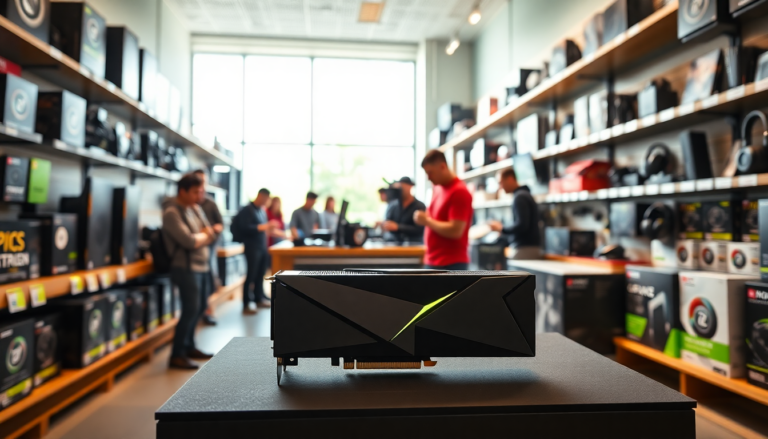Argomenti trattati
Imagine walking into a store, excited to get your hands on the latest tech wonder. That’s how many PC gamers felt with the launch of Nvidia’s GeForce RTX 5060. Priced at $299, it seemed like the perfect entry into the RTX 50-series lineup—a beacon of hope for budget-conscious gamers. But, as the saying goes, not all that glitters is gold. The launch feels more like a whisper than a bang, and Nvidia seems to be aware of it.
Performance metrics that raise eyebrows
According to Nvidia’s own figures, the RTX 5060 offers a modest performance bump—around 20% faster than its predecessor, the RTX 4060. On paper, that sounds decent, right? But here’s the kicker: the RTX 5060 features only 8GB of GDDR7 memory. In a world that’s rapidly evolving, particularly in gaming, this feels like a glaring oversight. Can you imagine trying to run modern titles with that limited memory? You might as well try to fill a swimming pool with a garden hose.
Just recently, I was reminiscing about my own trials with an underpowered GPU. I remember the frustration of stuttering frames and texture pop-ins during critical moments in gameplay. It’s not just about the raw power of the card; it’s about how well it can handle the demands of today’s games. The RTX 5060’s capacity could lead to stuttering, crashes, and even games failing to load altogether, and that’s a deal-breaker for serious gamers.
Nvidia’s hush-hush approach raises suspicions
It’s curious how Nvidia has chosen to silence the chatter surrounding the 8GB RTX 5060. They didn’t send out samples to reviewers, and they’ve even withheld early GPU drivers. Now, what does that tell you? It feels like they’re trying to bury the conversation around this model before it even takes off. Traditionally, when a company is confident in its product, it rolls out the red carpet for reviews. Yet, here we are, with Nvidia seemingly hoping to slip this launch under the radar.
Moreover, releasing the card smack in the middle of Computex—the biggest PC industry show—while most reviewers are away? That’s not just odd; it’s almost strategic. It’s like planning a surprise party while your friends are on vacation. Nvidia must know that the competition is fierce, and the last thing they want is a flood of negative reviews overshadowing the RTX 5060.
Comparative analysis: RTX 5060 vs. competitors
The sad truth is that when compared to competitors like the Intel Arc B580, which boasts 12GB of VRAM, the RTX 5060 looks like a weak contender. I watched a video that showcased the performance differences, and let me tell you: the Arc B580 was pulling ahead in several titles. Even though the 5060 has better raw performance, it struggled with memory limitations. It’s astonishing, really. We’re in 2025, and this is where we find ourselves—debating the merits of a card with such limited memory.
As many know, memory is crucial for rendering textures and maintaining frame rates. If a card can’t keep up with the demands of modern games, it doesn’t matter how fast it is in theory. It’s like having a Ferrari but only being able to fill it with a quarter tank of gas. You might look good sitting in it, but you ain’t going anywhere fast.
What’s next for Nvidia?
So, what can we expect next from Nvidia? The RTX 5060 is out, and while it might find a niche among esports titles at 1080p, anyone looking for longevity or versatility should proceed with caution. The whispers of doubt are growing louder—can Nvidia rebound from this misstep? Personally, I believe they need to rethink their approach to memory in their future models, especially as we edge closer to a new generation of gaming experiences that demand more than what the current offerings provide.
As I sit here, pondering whether to jump on the RTX 5060 bandwagon, I can’t help but remember my own experiences with waiting for the right tech. Sometimes it’s better to hold off, do a little research, and let the early adopters take the plunge. After all, when it comes to graphics cards, being the first may not always mean being the best.

